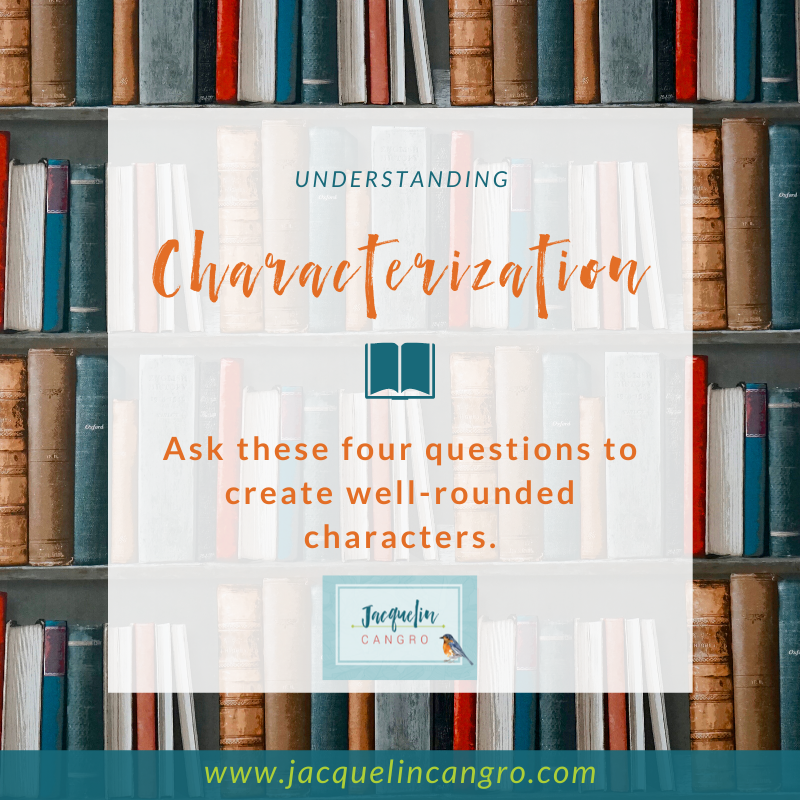No doubt you’ve seen them — the charts that allow you to get to know your novel’s characters by filling in the blanks. These charts prompt you with basic questions: Siblings? Age? Education? Some are questionnaires asking you to identify the character’s favorite color and food. Many writers diligently complete these charts and still don’t know their characters.
Why? Because these charts focus on surface-level details; the type of information that you might share at a cocktail party. They don’t get at what makes the character tick.
This isn’t to say that these details are unimportant, just that the charts are filled with a false premise: complete this form and your problems will be solved. (We’ve all heard that one before!) There is an implication that knowing your character’s favorite book is Pride and Prejudice will say something about them. I’m just not sure what that “something” is.
Well-rounded characters don’t materialize from this kind of shallow information. They come from understanding what motivates them. Which creates a bond between reader and character deeper than both sharing a love of red velvet cake. I think charts can be a good start, but get out your shovel. We’re digging deeper.

So, what does work? Ask these four questions.
Ask your characters these four crucial questions, and don’t let them off the hook. This includes your protagonist(s), major supporting characters and antagonist(s).
1.What is your struggle?
This is a straightforward question, but it can be difficult to pinpoint the answer. Your characters may lead with something outside of themselves, such as world peace or world domination (as the case may be). Look to the internal struggle and be as specific as possible.
2.Why do you want this?
Behind every desire or struggle lies a reason why. Characters, like people, don’t want things randomly. Try getting your characters to fill in the blank: I want this because I feel ___________________. There is an emotion tied to your character’s desire, and it’s your job to uncover it.
3.What will happen if you don’t get what you want?
In other words, what are the consequences if your characters cannot overcome their struggles to get what they want? If there are no consequences, there isn’t much risk in going after those desires. Also if the consequences aren’t…consequential, they may not really want what they say they want.
4.What will your life be like if you overcome this struggle?
Let your characters imagine their world on the other side. They take the risk, overcome this struggle and get what they want. Sure, they’ll be “happy” and “at peace,” but allow them to get specific. Will they live in a house on the beach? Will they be free from an addiction? Will they have a terrific job at a bookstore? Will there be a parade in their honor? This is how the reader will know when the characters have reached their goal.
Have you asked your characters these big four questions? Do you find yourself struggling to create well-rounded characters in your novel? Post them in the comments and let’s discuss!



Thank you very much, I so much care to write stories of interest. Had written my first Story at the age of six years young named The Haunted House. The teacher loved it and entered it in a children’s Writing Competition and my story wins First Place. I have been so excited since that day in time and have never had time to write another story for School Homework and other classes mother had me signed up for to further my education which included Singing, Dancing, Art, Reading of books that matter to inspire my senses to write meaningful stories to inspire me. Yes, I Am a Reader of a varied selection of all storybooks and love what I learn from each Book I Read. Amen~ Helen Gray New York.
Thank you Jacquelin gray@spinali.net.